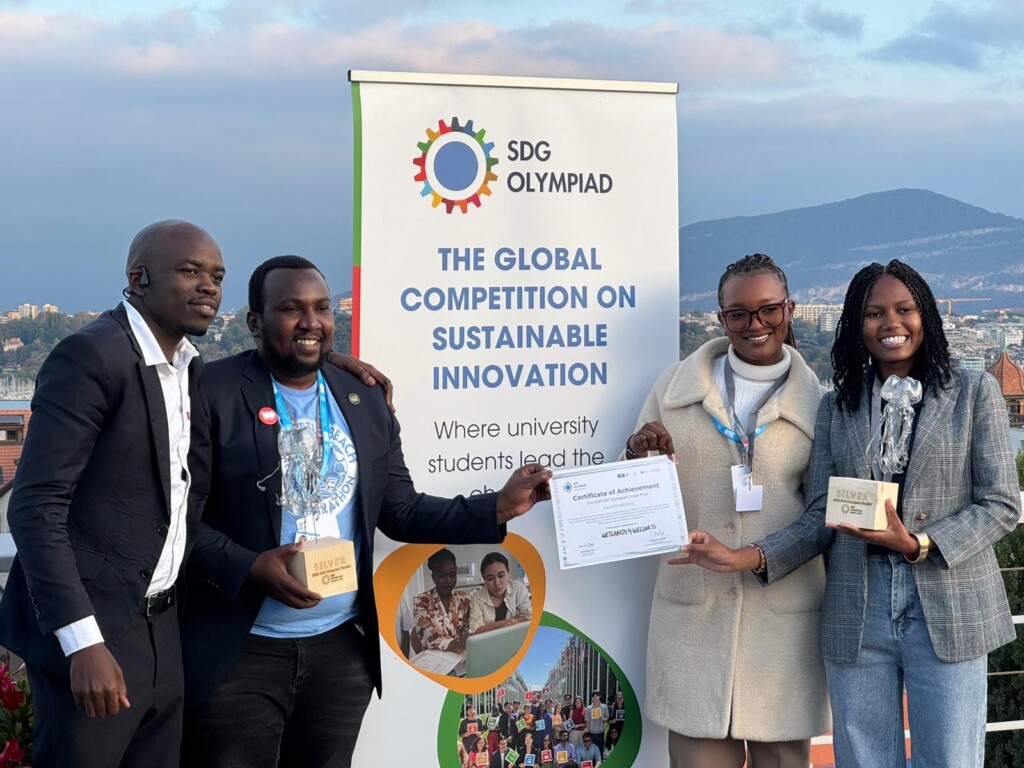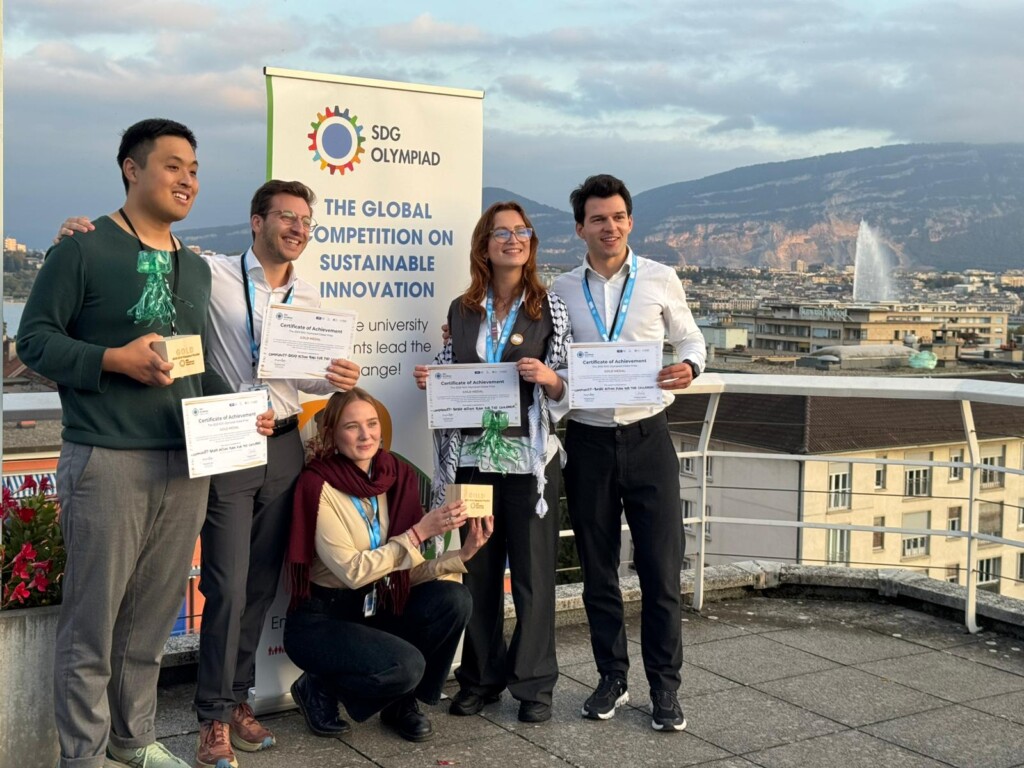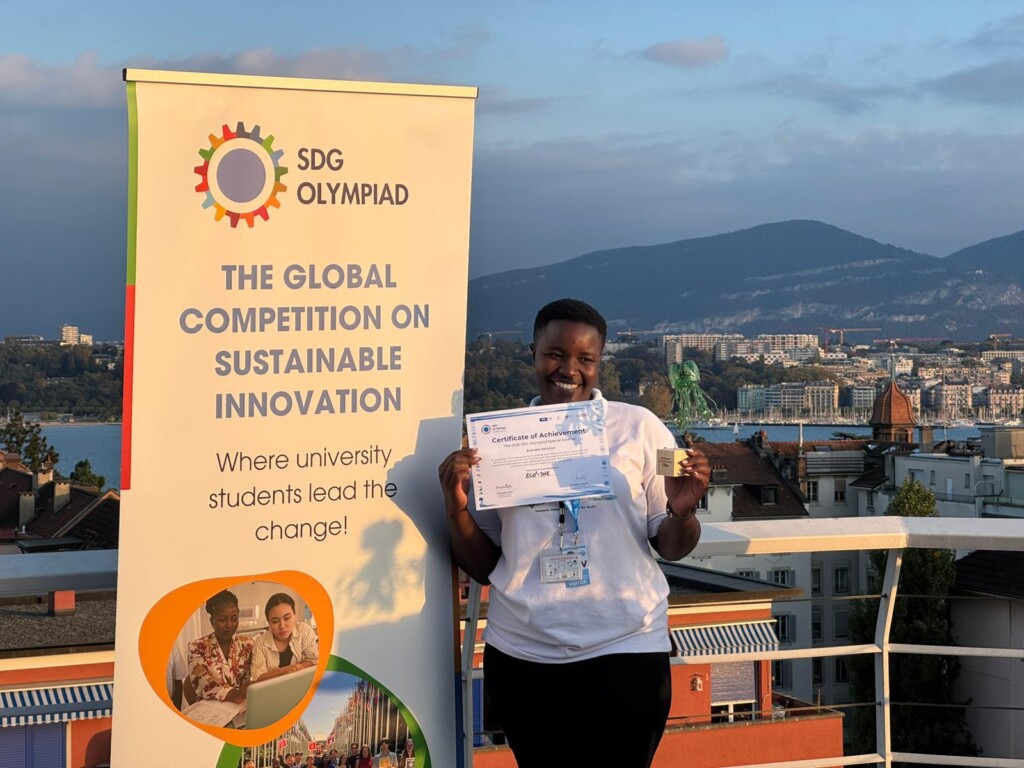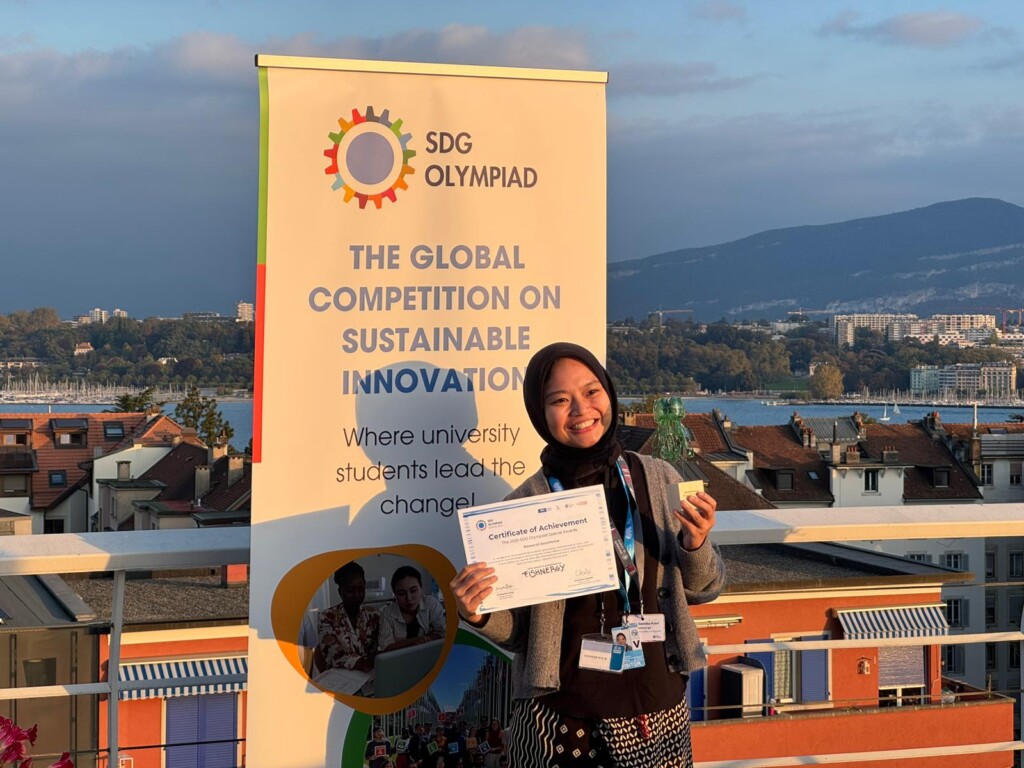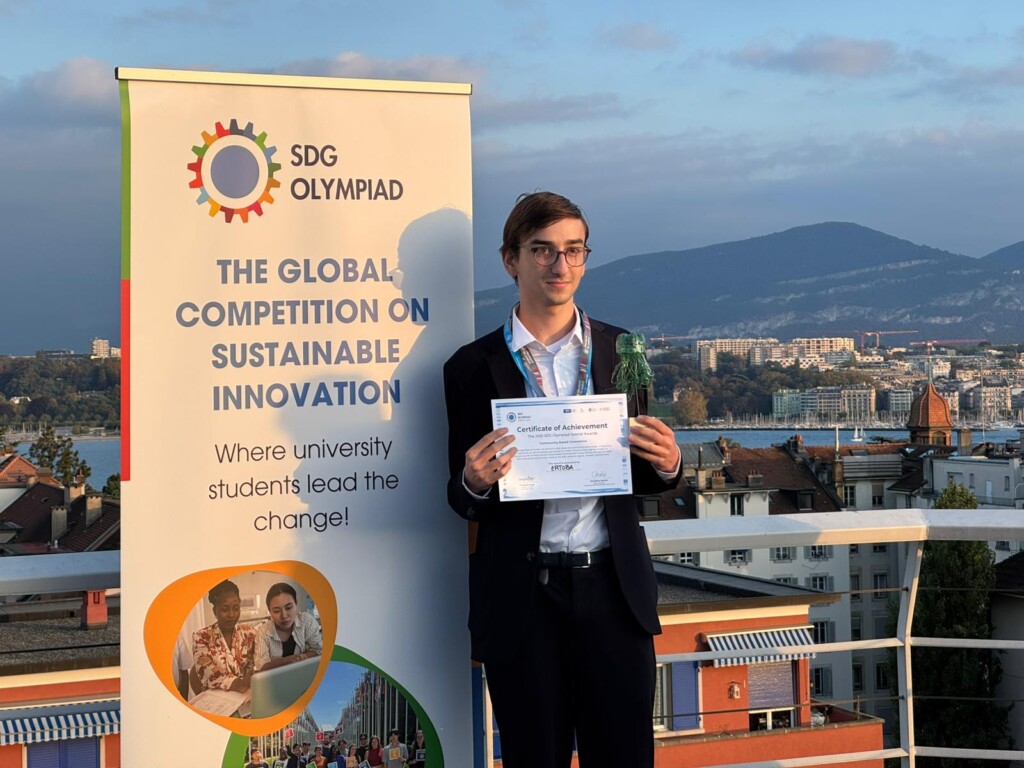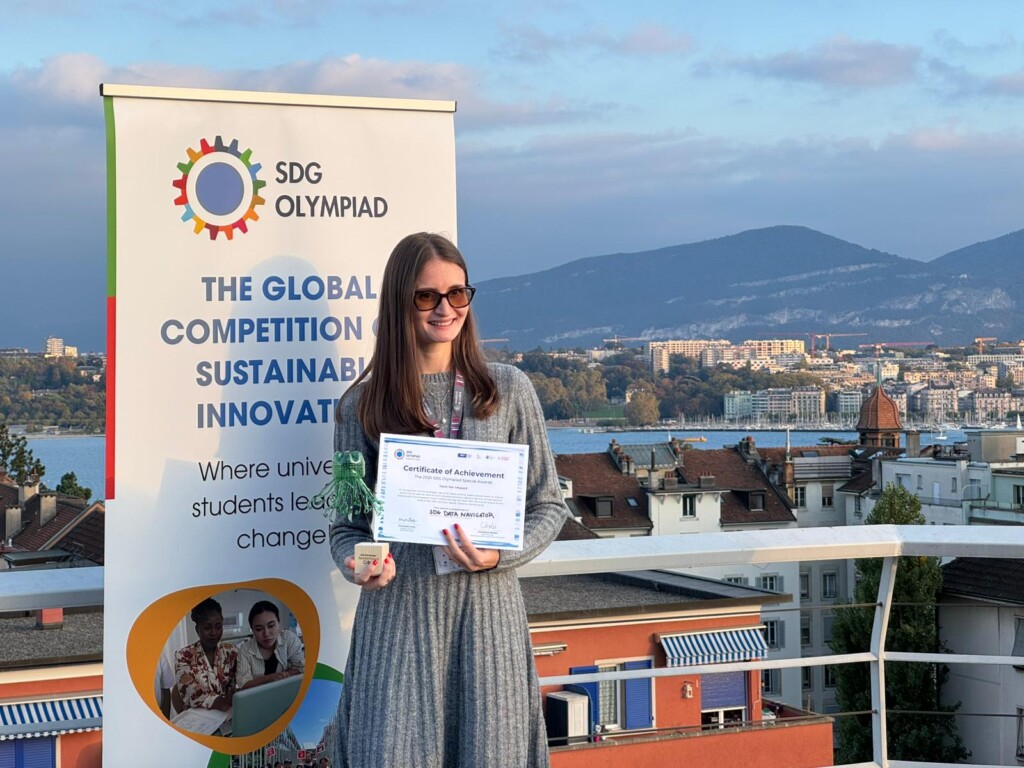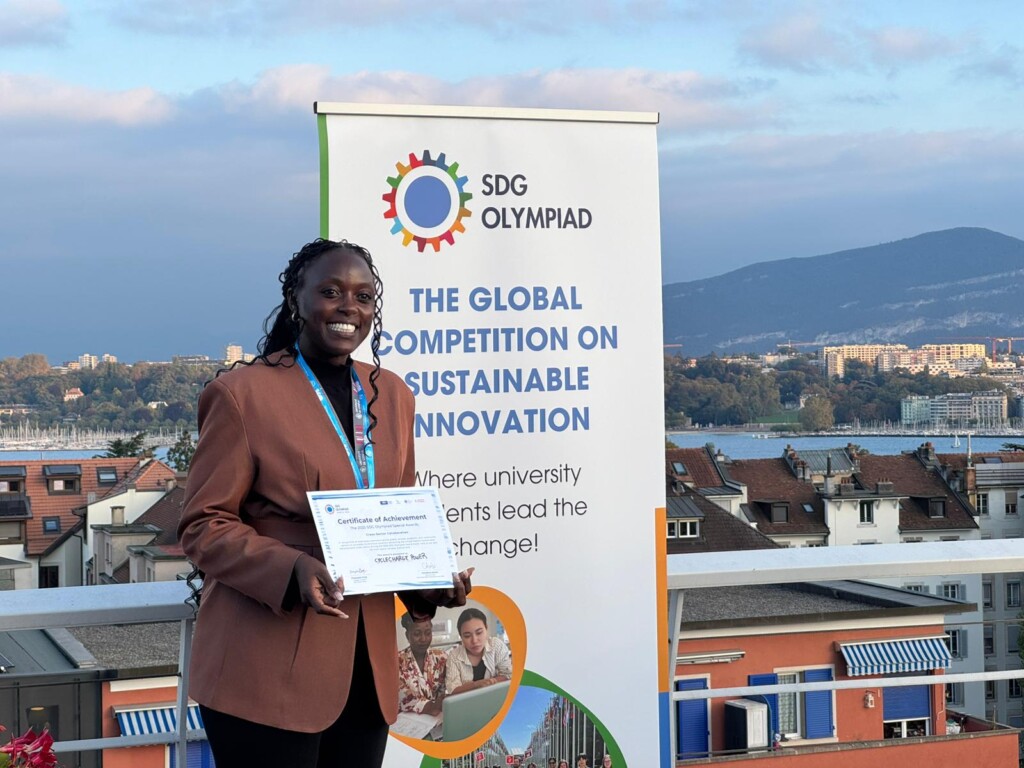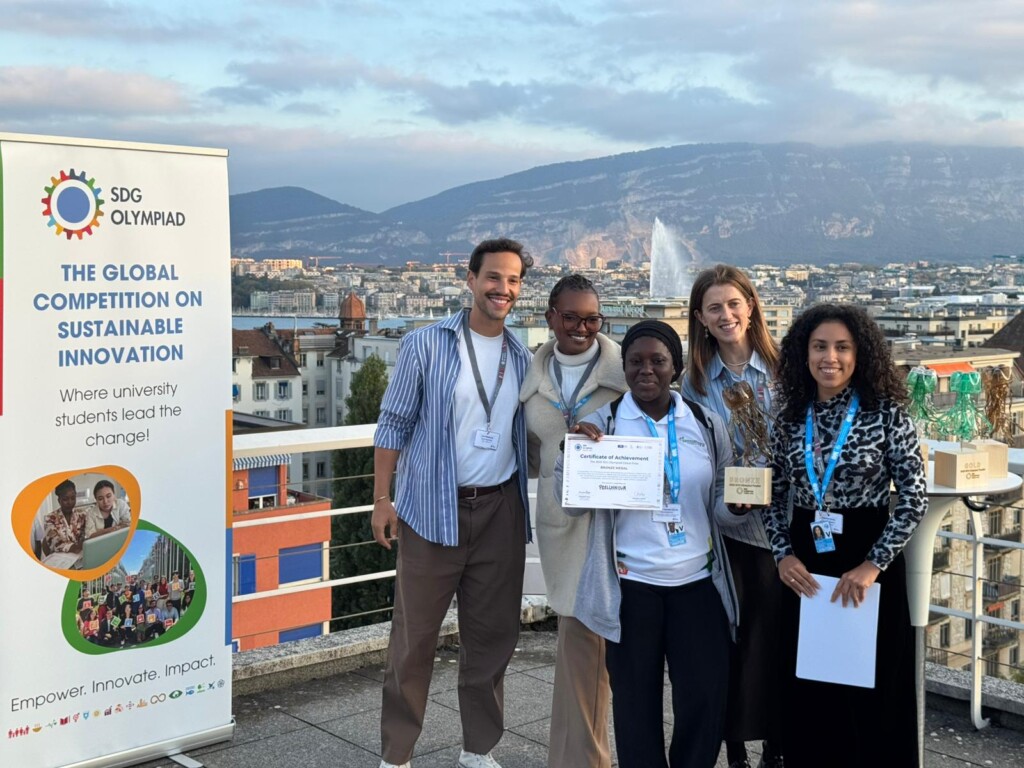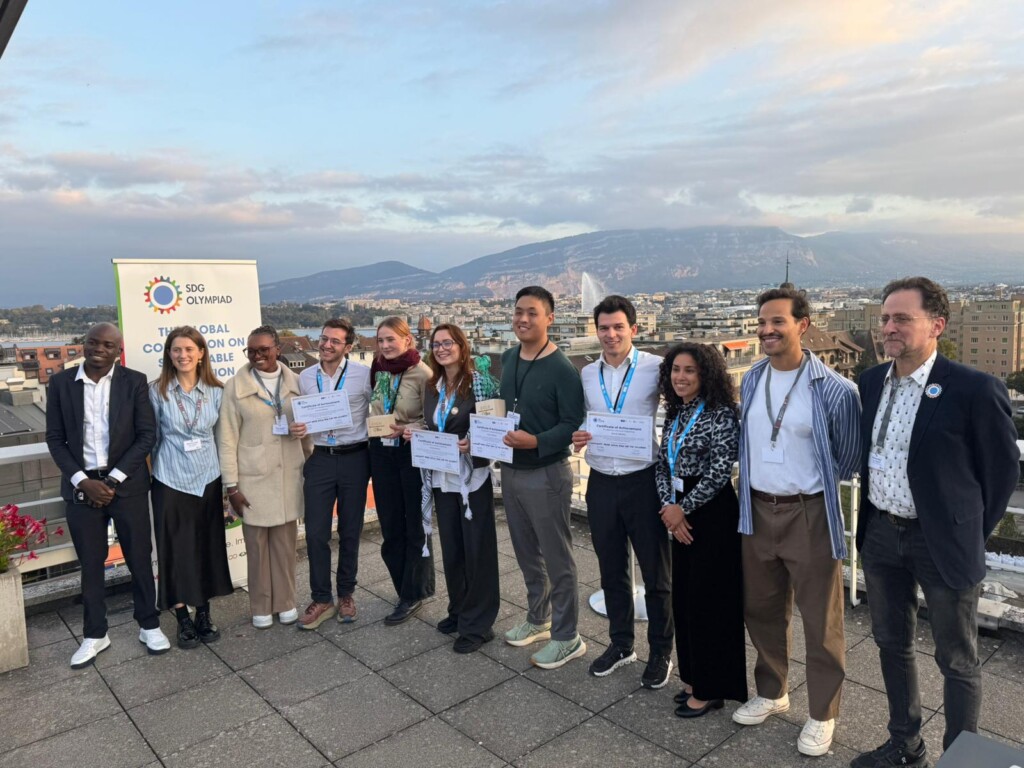A community-based action plan to ensure insulin continuity for children during emergencies wins in the 2025 SDG Olympiad
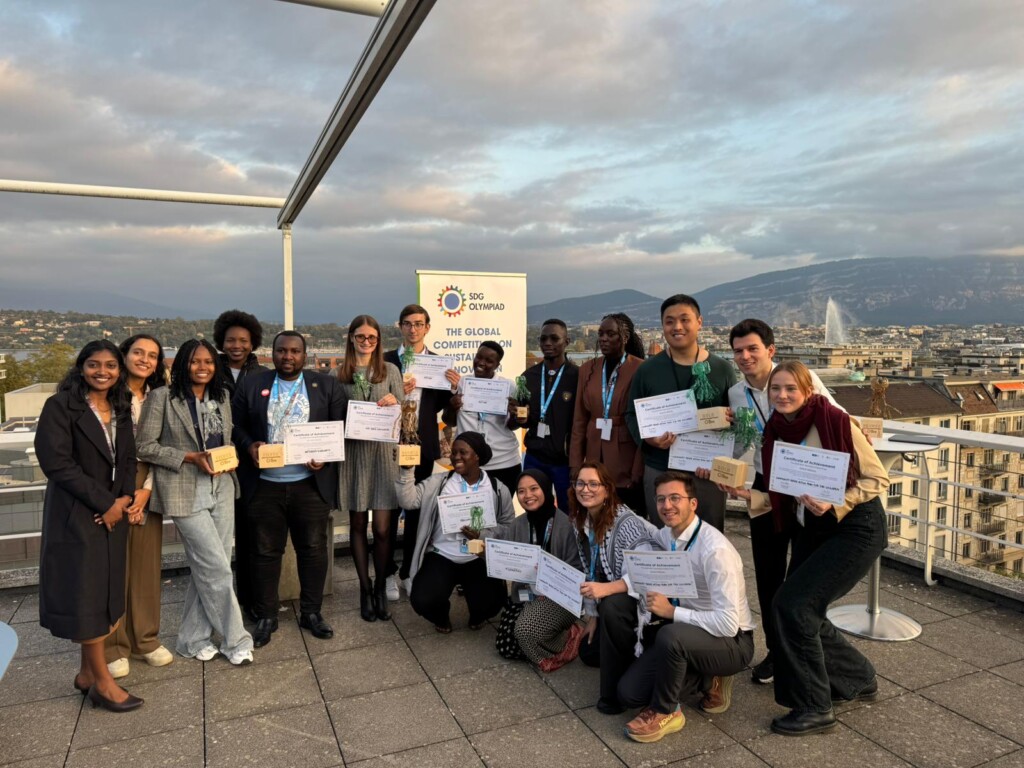
On 10 October 2025, The SDG Olympiad Award Event took place at the University of Geneva, where the 14 finalist teams presented their projects to a jury, who finally selected the best works. A community-based action plan that connects families, Lebanese Red Cross, and safe storage sites to ensure insulin continuity for Type-1 diabetic children during emergencies won the Gold prize. Six more prizes were awarded in the ceremony: the silver and bronze prizes, and four special prizes for the technology for impact, the community-based award, the research award and the scalable solution. See below the list of winning projects.
The SDG Olympiad is an international student-driven competition dedicated to advancing the Sustainable Development Goals (SDGs). Launched in 2024 by a network of 12 universities, the SDG Olympiad is coordinated by student teams in Geneva and Nairobi, supported by their institutions and initiatives, including ALBATROSS.
This year’s edition attracted to more than 700 students worldwide, from bachelor’s to PhD levels, who took part by proposing different types of innovations in line with the SDGs. Beyond competition, the Olympiad is oriented to drive real impact. Through collaboration, mentorship, and creative problem-solving, participants have the opportunity to contribute to meaningful change on a global scale.
During the Award Event, the 14 finalist teams, half of which are from Africa and the rest from Europe and Asia, defended their projects before an expert jury in short pitches. The jury included an international expert panel, with representatives from ITU, IOC, CERN, as well as from ALBATROSS: Paolo Ruggieri, from UNIBO.
After the Award Event, participants enjoyed the weekend in activities, workshops, and visits designed to foster collaboration and exchange among participants.
This has been the second edition of the SDG Olympiad, following its 2024 debut in Paris. In 2026, the Olympiad will move to Africa, hosted by Kwame Nkrumah University of Science and Technology (KNUST) in Kumasi, Ghana.
Winning projects
Gold prize: Community-based action plan for T1D children, by a team from the University of Copenhagen.
Silver prize: Wetlands4Wellness, a community-driven project focused on restoring a wetland in Keny by integrating Nature-based solutions with indigenous knowledge systems, by a Team from the United States International University.
Bronze prize: Pellnova, a Ghanina health-focused start-up which transformas fruit peel waste into eco-friendly mosquito-repelling products, by a team from KNUST.
Special award to the scalable solution: Eco2-She, for the production of sustainable sanitary products made from agricultural waste such as sugarcane bagasse and sorghum baggase, by a team from the Masinde Muliro University of Science and Technology.
Special Research Award: FishEnergy, a solution to transform fish waste into biogas, generating electricity to power cold storage hubs, extend fish shelf life, and cut carbon emissions. It has been developed to address the fish waste problem and scarce electricity in coastal communities of Maluku, Indonesia, by a team from the Technical University of Munich.
Special Community-Based Award: Ertoba, an AI-powered language learning platform designed to preserve endangered Georgial languages Megrelian, Svan, and Abkhazian, by a team from the Grigol Robakidze University Georgia
Special Cross Section Collaboration: Cycle charge power, a human-powered clean energy solution designed to address unreliable electricity access and costly power alternatives in Kenya. By recycling old car alternators and lead-acid batteries from garages and scrap yards, the system converts kinetic energy from pedalling a bicycle into stored electricity, which can then power household small appliances.
